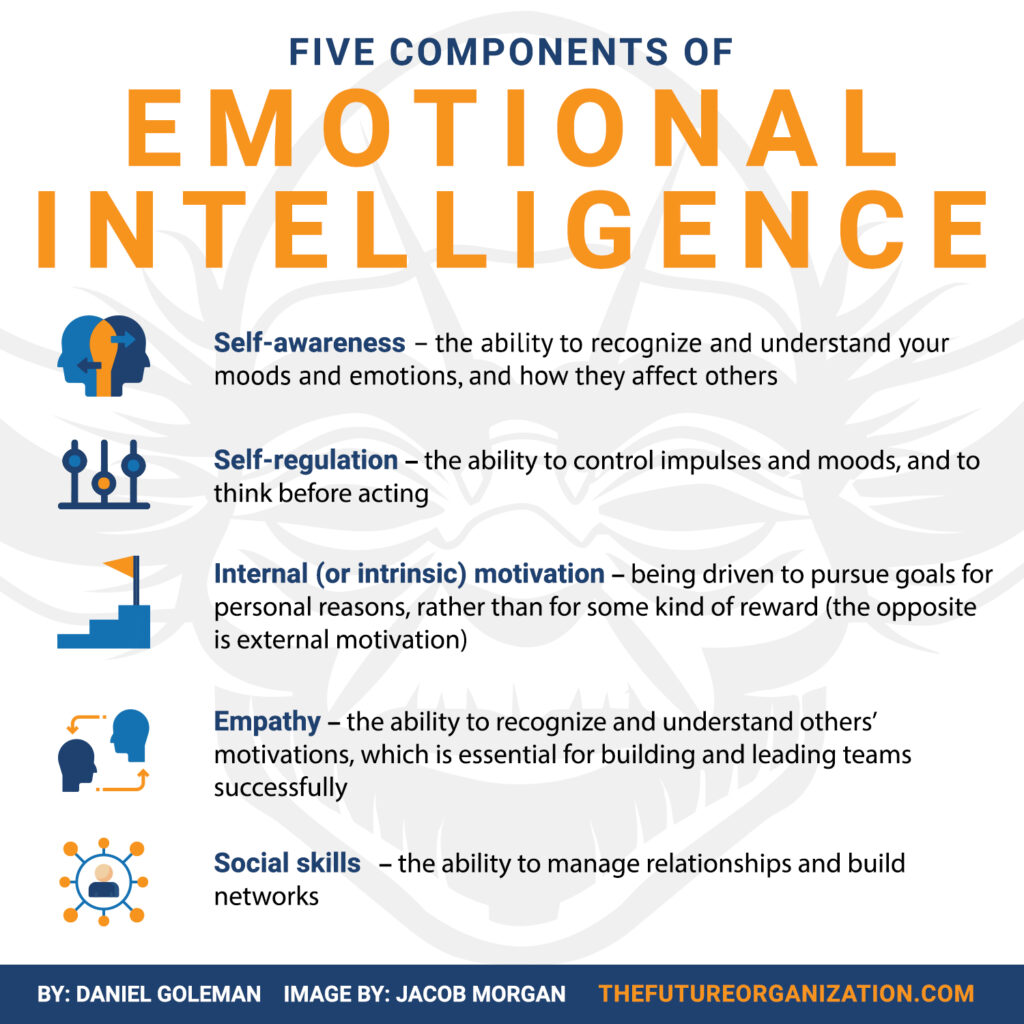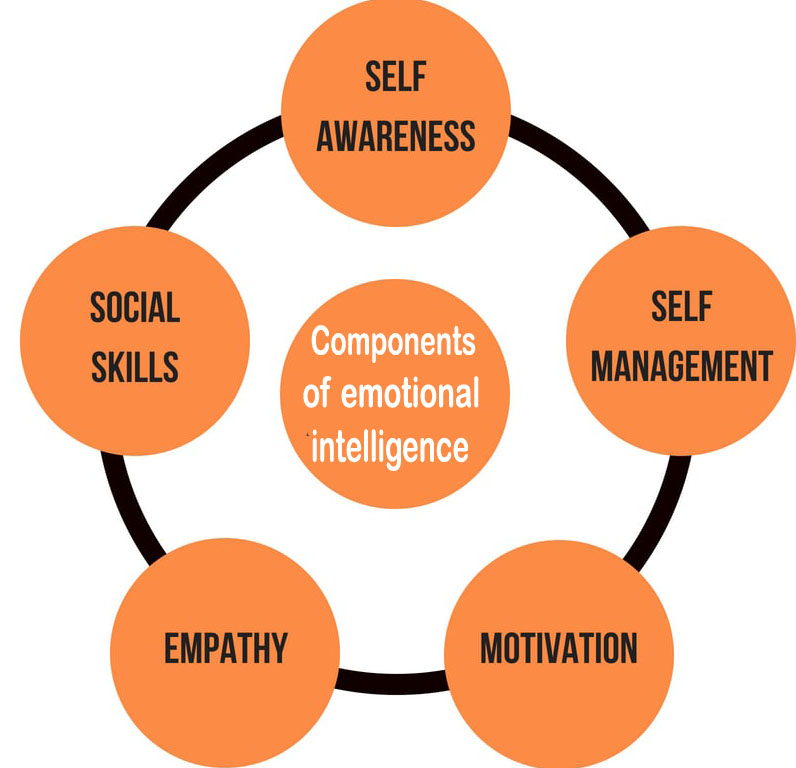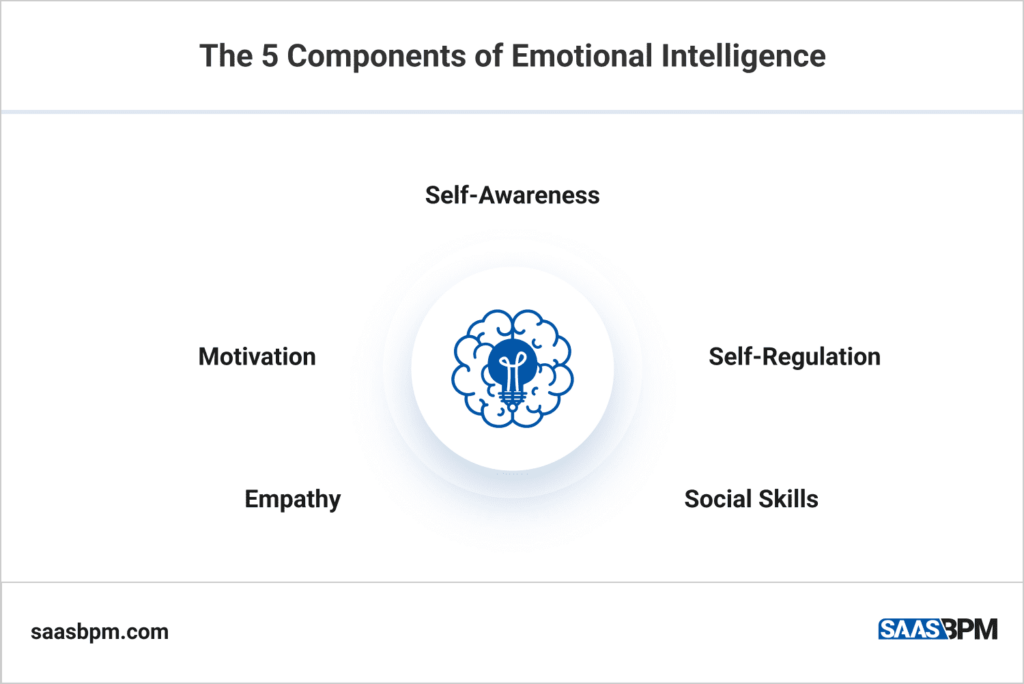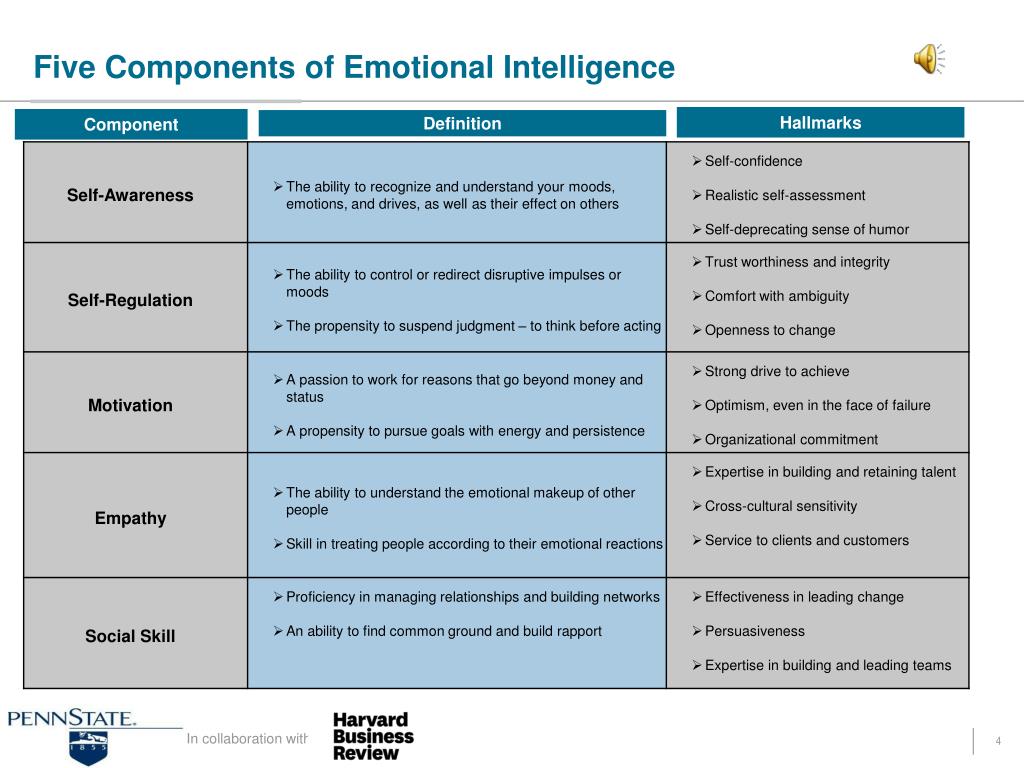Daniel Goleman 5 Components Of Emotional Intelligence

In an increasingly complex and interconnected world, the ability to understand and manage emotions, both our own and those of others, has emerged as a crucial skill for success in both personal and professional life. This skillset, often referred to as emotional intelligence, goes beyond mere intellect, influencing everything from communication and collaboration to leadership and decision-making. But what exactly constitutes this vital capacity, and how can it be cultivated?
At the heart of emotional intelligence lies a framework popularized by psychologist and science journalist Daniel Goleman. His model, built upon decades of research, breaks down emotional intelligence into five core components: self-awareness, self-regulation, motivation, empathy, and social skills. Understanding these components is the first step toward unlocking the power of emotional intelligence, leading to stronger relationships, improved performance, and greater overall well-being.
The Five Pillars of Emotional Intelligence
Self-Awareness: Knowing Your Emotions
Self-awareness is the cornerstone of emotional intelligence. It involves the ability to recognize and understand your own emotions, as well as their impact on your thoughts and behavior. This includes being able to identify your strengths and weaknesses, values and beliefs.
Individuals with high self-awareness are typically more confident, self-accepting, and less likely to be overly critical of themselves. They are also better equipped to understand how their emotions affect others, leading to more authentic and effective interactions.
Developing self-awareness requires introspection and a willingness to examine one's own feelings and reactions. Techniques like journaling, mindfulness meditation, and seeking feedback from trusted sources can be valuable tools in this process.
Self-Regulation: Managing Your Emotions
Once you're aware of your emotions, the next step is self-regulation, or the ability to control and manage them effectively. This doesn't mean suppressing or denying your feelings, but rather responding to them in a healthy and constructive way.
Self-regulation involves techniques such as impulse control, stress management, and emotional flexibility. Those skilled in self-regulation are able to remain calm under pressure, adapt to change, and recover quickly from setbacks.
This ability is crucial for maintaining healthy relationships and making sound decisions, especially in challenging situations. Strategies like deep breathing exercises, cognitive reappraisal, and taking time for reflection can help strengthen self-regulation skills.
Motivation: Driven by Passion
Motivation, in the context of emotional intelligence, refers to being driven by internal factors rather than external rewards. It's about having a passion for what you do, setting challenging goals, and persevering through obstacles.
Emotionally intelligent individuals are typically highly motivated and committed to their goals, even in the face of adversity. They are optimistic, resilient, and constantly seeking ways to improve and achieve success.
Cultivating motivation involves identifying your values, setting meaningful goals, and maintaining a positive attitude. Visualization techniques, affirmations, and focusing on the progress you've made can help fuel your inner drive.
Empathy: Understanding Others' Emotions
Empathy is the ability to understand and share the feelings of others. It involves putting yourself in someone else's shoes and seeing the world from their perspective. This component is vital for building strong relationships and fostering effective communication.
Empathic individuals are good listeners, sensitive to nonverbal cues, and able to respond to others with compassion and understanding. They are often skilled at resolving conflicts and building consensus.
Developing empathy requires active listening, paying attention to body language, and consciously trying to understand the perspectives of others. Asking questions, seeking clarification, and showing genuine interest in others' experiences can enhance empathy skills.
Social Skills: Building Relationships
The final component of emotional intelligence, social skills, encompasses a broad range of interpersonal abilities. This includes effective communication, collaboration, conflict resolution, and leadership skills.
Emotionally intelligent individuals are adept at building and maintaining strong relationships, working effectively in teams, and influencing others in a positive way. They are often seen as approachable, trustworthy, and well-respected.
Improving social skills involves practicing active listening, developing clear communication skills, and learning to navigate social situations with confidence and grace. Seeking opportunities to collaborate with others, offering constructive feedback, and learning from successful communicators can all contribute to stronger social skills.
The Ongoing Relevance of Emotional Intelligence
Goleman's framework for understanding emotional intelligence continues to be highly relevant in today's world. Organizations increasingly recognize the value of emotionally intelligent leaders and employees, as demonstrated by various corporate training programs and hiring practices. According to a 2022 study by the Society for Human Resource Management (SHRM), companies with high levels of employee emotional intelligence report lower turnover rates and higher levels of employee satisfaction.
While there are other models and perspectives on emotional intelligence, Goleman's five-component framework provides a clear and accessible roadmap for personal and professional development. By focusing on self-awareness, self-regulation, motivation, empathy, and social skills, individuals can unlock their emotional potential and create a more fulfilling and successful life.
In a world that is constantly evolving, the ability to understand and manage emotions will only become more important. Cultivating emotional intelligence is an investment in yourself, your relationships, and your future.


















